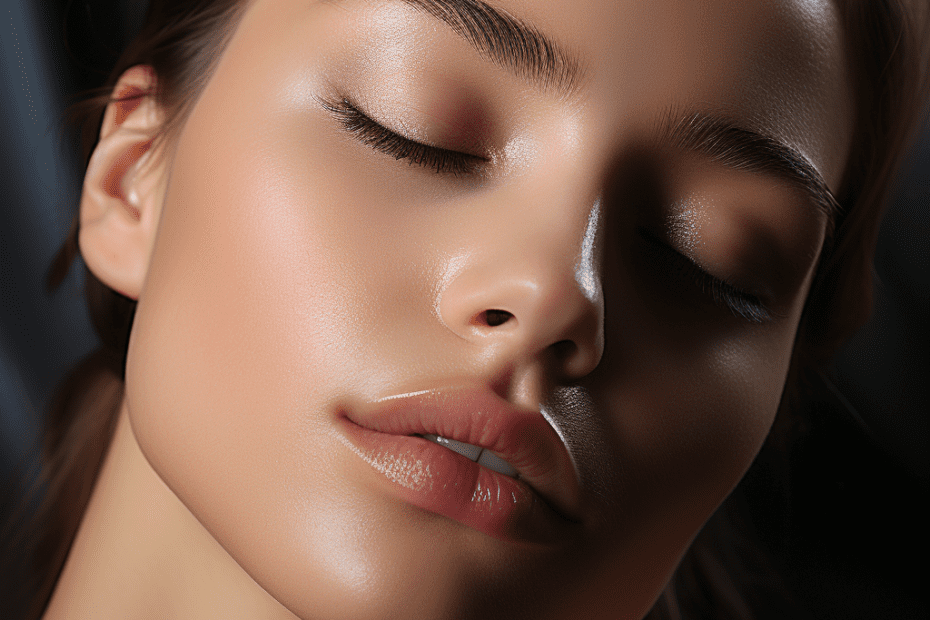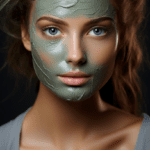Microneedling has become one of the most popular anti-aging skin treatments thanks to its ability to reduce signs of aging, improve tone and texture, and enhance absorption of skincare products. This minimally invasive procedure uses tiny needles to stimulate collagen production and skin regeneration.
In this complete guide to microneedling, we’ll cover everything you need to know:
What is Microneedling?
Microneedling, also known as collagen induction therapy or percutaneous collagen induction, involves using a device with fine, short needles to create microscopic punctures in the top layer of the skin. This stimulates the body’s natural wound healing response, leading to increased collagen and elastin production.
The tiny injuries in the epidermis allow serums and creams to better penetrate the skin during the treatment. The micro-injuries also trigger the release of growth factors that boost skin repair and regeneration.
This process remodels collagen, enhances skin elasticity, improves tone and texture, and reduces the appearance of fine lines, wrinkles, enlarged pores, pigmentation, and acne scars.
How Does Microneedling Work?
Microneedling works by utilizing tiny sterile needles ranging from 0.25mm to 2.0mm in length to create controlled micro-injuries in the skin. This triggers the body to ramp up collagen and elastin production as part of the healing response.
The tiny punctures also expand the channels between skin cells, allowing serums with nourishing ingredients like hyaluronic acid, growth factors, antioxidants, and vitamins to penetrate deeper into the layers of the skin.
Repeated microneedling treatments lead to improved absorption of skincare products for better results. The new collagen formed creates smoother, firmer, more toned looking skin.
Benefits of Microneedling
Microneedling offers a long list of anti-aging and skin rejuvenation benefits, including:
Smooths Fine Lines and Wrinkles
By boosting collagen production in the dermis, microneedling can significantly reduce the appearance of fine lines, crow’s feet, forehead creases, and other wrinkles.
Improves Acne Scars
Penetrating deep into the dermis where scars form, microneedling breaks up scar tissue and stimulates remodeling of skin structure for improved appearance of acne scarring.
Minimizes Pores
Microneedling improves the skin’s texture and reduces pore size by stimulating collagen production around sebaceous glands and tightening the epidermis.
Evens Skin Tone and Texture
New collagen formation helps smooth rough skin texture, even pigmentation, and minimize sun spots for brighter, more uniform skin tone.
Increases Product Absorption
The micro-channels created allow skincare ingredients like hyaluronic acid, retinoids, and vitamin C to penetrate deeper for enhanced efficacy and absorption.
Tightens and Firms Skin
Collagen induction achieved through microneedling creates firmer, tighter skin that combats signs of aging like sagging contours and crepey neck skin.
Minimal Downtime
While you may experience some redness for 24-48 hours after treatment, microneedling has very little downtime compared to more invasive procedures. Most people can return to normal activities right away.
Who is a Candidate for Microneedling?
Microneedling is safe and effective for most skin types and colors when performed properly. It’s ideal for those looking to:
- Reduce fine lines, wrinkles, crow’s feet
- Improve acne scars and enlarged pores
- Even skin tone and smooth rough texture
- Tighten, lift and rejuvenate aging skin
- Increase product absorption for better anti-aging results
Microneedling is not recommended for those with:
- Active acne breakouts or infections
- Skin diseases like eczema or psoriasis
- Use of blood thinners or blood clotting disorders
- Certain medications like Accutane which thin the skin
Always consult with your dermatologist to see if you are a good candidate.
Types of Microneedling Treatments
There are a few different devices and techniques used:
In-Office Microneedling
This is performed at a dermatologist’s office using an electronic fractional microneedling device like the Eclipse MicroPen. The pen contains 12-36 tiny needles that puncture the skin at a controlled depth and speed to induce collagen and elastin.
Sessions are typically done every 4-6 weeks. Anesthesia is not required but numbing cream can be applied. 1-3 passes are done over the treatment areas like the face, neck, hands. Results are gradual over 2-3 months as collagen regenerates.
At-Home Microneedling Devices
Smaller, at-home microneedling pens with 0.2-0.3mm needles are available for purchase. These are gentle enough for daily use. Brands like the Dermaroller and Dr. Pen aim to enhance absorption of skincare products.
Use must be consistent for best results. Sterilization and proper technique are critical when using at-home to prevent infection. Consult a dermatologist before starting.
In-Office Professional Microneedling
More advanced microneedling offered at dermatology offices uses needles up to 2.5-3mm for maximum collagen stimulation. Topical anesthesia is applied for a more comfortable treatment.
Higher needle penetration means dramatic results but with 3-5 days of recovery time needed. Approximately 3-6 sessions done 6 weeks apart provide optimal outcomes.
Microneedling with RF
Radiofrequency heat is combined with microneedling for amplified skin tightening, contouring, and wrinkle reduction. The heat further stimulates collagen. Used mainly on the face and body.
Microneedling Procedure Steps
- The face is cleaned and numbing cream applied if desired. Hands must be washed thoroughly before handling needles.
- The appropriate pen device is selected based on needle length best suited for the patient’s needs and treatment area.
- The pen is positioned at a 90 degree angle against the skin and moved in a constant, controlled motion across the treatment area. Common areas include the face, neck, chest, hands.
- Each pass of the device creates microscopic channels into various depths of the dermis depending on needle size used, inducing trauma to stimulate wound healing.
- Serums containing hyaluronic acid, growth factors, antioxidants, and vitamins are applied as the channels allow for deeper absorption.
- Multiple passes are completed based on what the provider determines is appropriate for the individual’s skin.
- The face is cleaned to remove serum residue, excess product gently wiped off, and a soothing cream applied.
- Sunscreen must be used diligently after treatment as the skin is highly vulnerable.
- The treated area may remain red for up to 2 days. Exfoliation occurs over the next week as the epidermis regenerates.
How Long Do Microneedling Results Last?
While individuals’ longevity of results varies based on age, skin type, sun damage, and consistency of treatments, most patients can expect microneedling results to last approximately:
- 1 to 2 years for collagen stimulation, wrinkle reduction, and skin tightening benefits
- 6 to 12 months for improved scarring and hyperpigmentation
- Ongoing smoother skin texture when paired with a good skincare regimen
Maintenance sessions every 6-12 months are recommended to sustain the smoothing, firming, regeneration results. Consistent application of antioxidant and collagen-boosting skin products helps prolong effects.
Proper sun protection is key to maintaining results for as long as possible.
Microneedling At Home vs Professional Treatments
At Home Microneedling
- Less expensive devices available ($20-$300)
- Limited needle length – usually 0.2mm to 0.5mm
- Mainly improves topical product absorption
- Minimal pain, safe for daily use
- Best for light exfoliation and minor scar improvement
- No downtime
Professional Microneedling
- Medical grade devices with precision depth control
- Longer needle lengths up to 3mm for deeper penetration
- Significantly increases collagen production for anti-aging benefits
- Improves texture, pigmentation, tone, pore size, elasticity
- Best for reducing deep wrinkles and acne scarring
- Some downtime, redness, and recovery time
Professional microneedling performed in-office by a licensed provider offers far more dramatic skin rejuvenation compared to at-home devices. However, at-home tools still provide mild exfoliation and can improve topical absorption when used consistently.
Consult a dermatologist to determine if medical microneedling could benefit your particular skin concerns.
How Much Does Professional Microneedling Cost?
Professional microneedling sessions can range from $150 to $700 per treatment depending on your provider, geographic location, number of treatment areas, and type of device used.
- Dermatologist office: $250 – $700 per session
- MedSpa: $150 – $400 per session
Packages of 3-6 microneedling treatments provide a discounted rate. Treatments are recommended every 4-6 weeks. Some factors affecting the costs:
- Device used – Advanced microneedling devices tend to cost more
- Number of passes performed
- Size of treatment area – face only vs face + neck/décolleté
- Additional techniques like radiofrequency
- Geographic region and provider’s rates
Many patients find the dramatic regeneration and anti-aging results well worth the cost over time.
Are There Any Side Effects?
When performed correctly by a licensed provider, microneedling is proven to be safe for most skin types with minimal risk of side effects.
Potential side effects include:
- Redness, swelling, sensitivity for up to 72 hours
- Dryness, flaking, peeling for up to 1 week post-procedure as epidermis regenerates
- Rare chance of infection if not properly sterilized – critical for at-home use
- Post-inflammatory hyperpigmentation if skin not protected from sun
- Mild tingling, irritation during the treatment
How to Prepare for a Microneedling Treatment
Preparing your skin properly prior to microneedling will help maximize results and reduce side effects.
1 Month Before:
- Stop use of products containing retinoids, benzoyl peroxide, glycolic/salicylic acid
2 Weeks Before:
- Avoid unprotected sun exposure and tanning
- Cease waxing, depilatory creams, laser hair removal
1 Week Before:
- Hydrate skin extensively and use gentle cleansers only
- Shave instead of tweezing/waxing if needed
Day Before:
- Exfoliate skin to remove dry, flaky skin cells before punctures
- Wash face with gentle cleanser and water only, no active ingredients
- Hydrating sheet mask encouraged to increase moisture
Day of Procedure:
- Arrive to appointment with clean skin – no lotions, makeup, creams
- Avoid stimulants like caffeine
- Pain relievers can help ease any potential discomfort
- Application of topical numbing cream may be offered
Proper skin prep allows for the best possible microneedling results.
Post Treatment Care for Optimal Results
Following your provider’s aftercare instructions is vital for healing safely and getting the most out of your microneedling sessions.
- Use gentle cleansers only, avoid active ingredients for 1 week post-treatment
- Hydrating serums, antioxidant creams can aid the recovery process
- Avoid direct sunlight for at least 1 week as skin is highly sensitive
- Wear broad spectrum SPF 30+ sunscreen diligently for 3 months
- Stay well-hydrated and eat a nutrient-rich diet to fortify the healing process
- Avoid sweat, swimming, makeup, and rubbing skin for 72 hours
- Do not use retinoids, acids, bleaching creams until skin is fully healed
- Makeup can be worn only after skin has fully regenerated, about 9-14 days
Proper aftercare minimizes side effects and sustains the rejuvenation effects longer term.
Microneedling Results – Before and After Pictures
As demonstrated in these before and after photos, microneedling can transform skin texture, smoothness, tone, pore size, fine lines, wrinkles, and scarring. Results continue to improve over the 3 months following treatment as collagen regeneration occurs.
Microneedling FAQs
How long do microneedling results last?
Results can last 12-24 months. Maintenance sessions every 6-12 months help sustain the benefits. Using collagen-stimulating skin products extends results.
How long does it take to see results?
Improvements are gradual over 6-8 weeks. Maximum effect occurs after 3 months as collagen fully regenerates.
How often can it be done?
Every 4-6 weeks for a series of 3-6 sessions. Then maintenance every 6 to 12 months.
Does it really improve acne scars?
Yes! The collagen induction smooths out depressed acne scarring. However, severely pitted scarring may also need subcision or laser.
Does microneedling work for stretch marks?
Microneedling improves stretch marks by increasing collagen in indented areas and making their appearance less noticeable.
Is there downtime?
Minimal. Some temporary redness, swelling, dryness may occur for up to 72 hours. Most resume normal activity immediately.
Does it hurt?
Topical numbing creams are used for pain control. The procedure involves some mild prickling sensations. Most consider it tolerable.
How deep do the needles penetrate?
Needle depths used range from 0.25mm to 3mm. The optimal depth depends on skin concerns. Deep microneedling for advanced skin rejuvenation uses 1.5mm to 2.5mm penetration.
Can I use retinol after microneedling?
Avoid retinoids for 1 week post-treatment as the skin barrier is compromised. Hydrating serums are best for recovery.
Schedule Your Microneedling Consultation
While results vary for each patient, almost all see significant improvements in their skin quality, tone, texture, and appearance of fine lines with microneedling. This regenerative therapy can help combat multiple signs of aging using your body’s own collagen-building capabilities.
Schedule a microneedling consultation today with our experienced team of professionals. We’ll help determine if this treatment is right for you!
Contact us or book your appointment online to get started.




